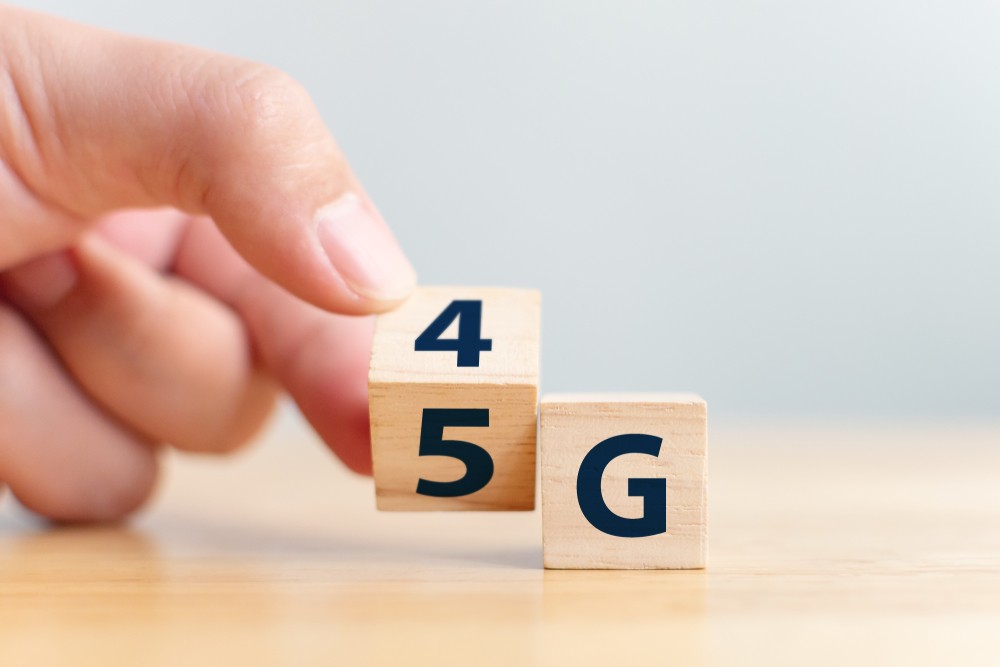Popular Reads
Top Results
Can't find what you're looking for?
View all search resultsPopular Reads
Top Results
Can't find what you're looking for?
View all search resultsVery late for 5G
The technology disparity may put Indonesia at risk of lagging further behind, in terms of the competitiveness of the telecommunications industry and the maturity of the country’s digital economy, which many have projected to grow exponentially.
Change text size
Gift Premium Articles
to Anyone
D
uring a recent visit to Mimika, Papua, President Joko “Jokowi” Widodo, with much pride, launched the use of fifth generation (5G) technology for mining giant PT Freeport Indonesia. By introducing 5G in Freeport, Jokowi said the national mining sector would not be left behind other countries and would be able to compete in the increasingly digitalized global economy.
State-Owned Enterprises Minister Erick Thohir, who accompanied the President, said 5G rollout in the mining sector had already occurred in the United States, Sweden, China and Russia, increasing productivity up to 25 percent and reducing operational costs, especially drilling, by 40 percent and reducing energy costs by 20 percent.
That was not the first time the government boasted about the use of 5G network and its overarching impact on the country. Ironically, nothing much has happened yet.
The government has announced a plan to auction segments of the 2.1 GHz radio frequency band in a move that may accelerate 5G adoption as the country strives to improve the quality and coverage of its digital economy.
Despite the announcement, things are moving slowly on the ground. Last year, the Communications and Information Ministry nearly canceled a highly anticipated auction for the 2.3 GHz frequency band.
The government, too, has yet to address the fundamental question behind the 5G network’s quality and frequency adequacy in the archipelago amid the slow auctions to open greater access to frequencies dedicated to the technology. The lack of radio frequency availability has hampered the development of the technology, making its presence barely noticeable so far.
The 5G technology has only been introduced to and adapted by the Indonesian market over the past year, meaning that it is a relatively juvenile technology for ASEAN’s biggest economy, while other states like China have already embarked on more steadfast 6G trials.
Citing a Nikkei and the Cyber Creative Institute survey, as per September 2021, several countries are already lining up for global 6G licenses or patents. China has applied for 40 percent of the patents, the US 35 percent, Japan 10 percent, the European Union 9 percent and South Korea 4 percent.
These dynamics will eventually push other countries to shift to 6G adoption in the next few years, whereas Indonesia is still struggling to adopt 5G or even spread the 4G network equally across islands and provinces.
The technology disparity may put Indonesia at risk of lagging further behind, in terms of the competitiveness of the telecommunications industry and the maturity of the country’s digital economy, which many have projected to grow exponentially. Worse, within the country the yawning gap in access to the high-speed internet, as the COVID-19 pandemic has blatantly shown, will exacerbate the socioeconomic divide we have been fighting against for many decades.
Although the auction of the 2.1 GHz band may benefit the 5G development, it will have to be accompanied by other changes to make a real difference, so Indonesia can still keep up in the global tech race.
Only through additional frequencies devoted to telecommunications, can Indonesians expect better speeds from providers in the near future.











